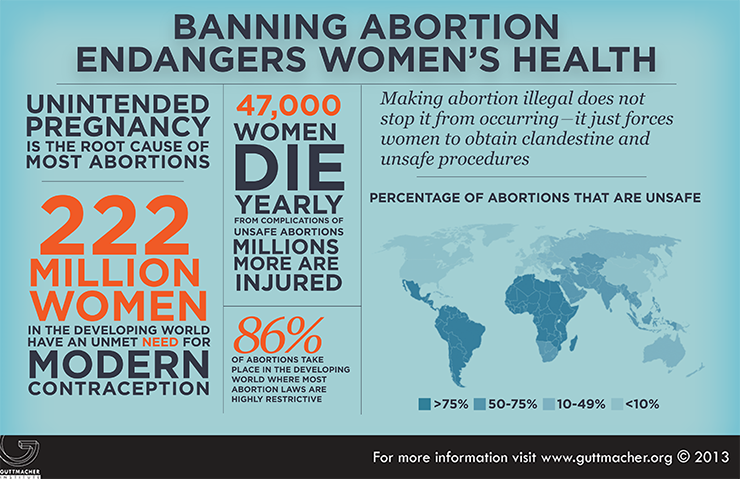
“I cannot understand anti-abortion arguments that centre on the sanctity of life. As a species we’ve fairly comprehensively demonstrated that we don’t believe in the sanctity of life. The shrugging acceptance of war, famine, epidemic, pain and life-long poverty shows us that, whatever we tell ourselves, we’ve made only the most feeble of efforts to really treat human life as sacred.”
This month we bring a range of contributions on the issue of Safe Abortion from activists working at the grassroots for the sexual and reproductive rights of women to have access to safe abortion. In many countries including India, despite abortion being legalised if certain conditions are met, it is largely inaccessible. Does legalization ensure access to safe abortion? Or does it not?
Abortion on the basis of sex selection and fetal anomalies complicate the feminist discourse on the issue for us further. Should access to safe abortion be unconditional and an absolute right for women? These are some questions we grapple with in this month’s blog with contributions from India, Indonesia, Lebanon, Pakistan and Sri Lanka.
Medha Gandhi from Ipas, maps the current position of abortion services in India in Issue in Focus. She looks into the obstacles to access safe abortion services despite medical termination of pregnancy being legal. Some of the impediments are stigma against abortion and the lack of knowledge about its legality.
The Interview section features Dr. Suchitra Dalvie, gynecologist and Coordinator of the Asia Safe Abortion Partnership (ASAP) interviewed by Shweta Krishnan. She tackles important issues about the complexity of ‘choice’ in the context of abortion and sex-selective abortions and explains why choice must be unconditional. In the Hindi section, Dipika Srivastava from TARSHI has translated excerpts of an article by Nivedita Menon, which maps the feminist dilemma around the absolute right to safe abortion.
There are activists everywhere doing their bit to make safe abortion accessible to women despite restrictive laws and social stigma. Rola Yasmine in the I column talks about her work in Lebanon and why she focuses on working directly with women rather than lobbying for changes to abortion laws. She offers more than a dash of irony in her reflections on the abortion discourse.
A hotline in Pakistan that provides information and support on abortion in an attempt to empower young women is hugely successful and is now being replicated in Bangladesh. Read about it in the Review section where Saba Ismail from ‘Aware Girls’ in Pakistan reviews the Sahailee Hotline. Indonesia, another country with legal restrictions on abortion has some intrepid activists working to dispel the stigma and discrimination surrounding abortion. Tia Setiyani a safe abortion rights activist from Indonesia, showcases her art work in Brushstrokes. Tia has also shared photos of street art in Indonesia during the 28 September campaign for Safe Abortion. Sarah Soysa from Sri Lanka shares photos from a campaign on Safe Abortion in Sri Lanka by young people in the Gallery section. In the Netherlands, Rebecca Gomperts began the Women on Waves project to help women in countries where abortion is illegal. Watch two videos based on the work of Women on Waves and their ship campaigns on safe abortion.
In the video section we also have an animated film made by Asia Safe Abortion Partnership titled ‘From Unwanted Pregnancy to Safe Abortion’. This film is an attempt to create spaces for conversations so that women can exercise one of their most basic reproductive rights. Speaking of films, Asilata Karandikar from CEHAT has written a review of the film Revolutionary Road which tackles questions of gender and reproductive choices in the 1950s USA that remain even today in many parts of the world.
Our contributors raise difficult questions and do not pretend to have all the answers. Let’s keep the conversations open so that we can find ways to expand rights for all people everywhere and affirm the rights of women to make choices about our bodies, our sexualities, our desires, and our futures, with or without babies.
The discussion will continue all month. Look out for the Blog Roll section on the 10th of the month to read about articles posted on other blogs. Coming soon are also some new widgets. Check them out on the 15th of this month. On the 22nd, join us for a Tweetathon on access to safe abortion. More information will follow.
We thank Shruti Mukherjee, Programme Associate, TARSHI for all her inputs into this month’s blog.
We look forward to your feedback on the blog as well as your contributions to future editions.